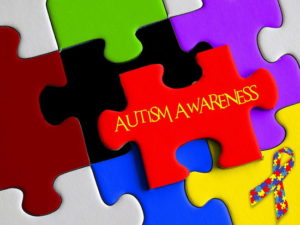
Everyone has the right to explore the world, visit public places, use public transportation, and be an active community member. But while some disabilities are apparent to people, autism does not necessarily show up on the surface.
Strangers assume that for autistic people dealing with this world is no different than that for a typical child. Except that it mostly isn’t and when they are held to the same standards as a normal person, it leads to stressful situations for the autistic child.
If you speak with the parents of an autistic child, they’ll surely tell you at least one incident of a passer-by who told them to handle their misbehaving youngster or gave them a strange look. Most people assume that the child is naughty and don’t think that disability could be the reason behind their unnatural behavior.
What Problems Are Mostly Faced?

Public places present many challenges for children with this disability. Autism creates extra difficulties which makes coping extremely hard as they do not understand appropriate social behavior and what’s normal for them looks strange to others. People don’t appreciate the difference.
Sensory sensitiveness often promotes behaviors that are shocking to outsiders. Children with autism lick or sniff their parents out of love and innocence and the parents are aware of it, but if a stranger is liked or sniffed in the same manner, they are likely to be startled and react in an unfriendly manner.
Eating issues often create trouble in public gatherings. There are several taboos related to food and for children with autism, it can be difficult to observe them all. For instance, taking food from someone else’s plate is considered bad manners but a child with autism would not be able to understand that.
Often people with ASD are not able to manage their voices. It is common for autistic people to speak too loud, and sound hostile or angry even when it is not the case. This makes people think that a person is being aggressive or rude deliberately when he or she is only trying to communicate in the best way possible.
We deal with family and friends differently than how we interact with strangers. But for children with ASD, it is hard to understand this difference. Some children with autism will hug strangers to demonstrate their friendliness, but the strangers are not pleased when such things happen as they find it offensive.
Children with ASD often suffer from high anxiety. In a busy or new place, they may quickly lose control and exhibit behaviors that people consider challenging. For parents, managing such behaviors in public can be very difficult.
Parents of a child with ASD realize that even when they do their best, people who do not understand autism will judge them and blame them for their child’s condition. What’s good parenting for children with autism is very different than what is considered good parenting for a normal child: they have different so needs are met differently, too.
Should You Explain?
There have been some serious debates about whether or not you should tell people about your child’s autism disorder and explain that it is the reason for their actions. If you tell them, it would neutralize the wrong assumption about you being bad at parenting. If your child is experiencing a meltdown, people will back off to let you handle it instead of giving you unwanted advice.
On the other hand, you may think that the condition of your child is nobody else’s business and you should not have to provide everyone a medical record. You may not even be in any mood to get involved with others as you’re already worried about your child’s condition.
It all comes down to what you decide. You may think differently on certain occasions and whatever decision you make, just remember the wellbeing of your child should always be your focus, so go ahead with what best supports your child.
Any Resources that Can Help?
Special cards are printed by the “National Autistic Society” which can be used in case of emergencies to make people aware of your child’s condition.
Unfortunately, for you to manage your feelings there isn’t much official helping material available. It can be challenging to manage a child with ASD, but you should never give up as your child needs your love and support to survive in this harsh world.
